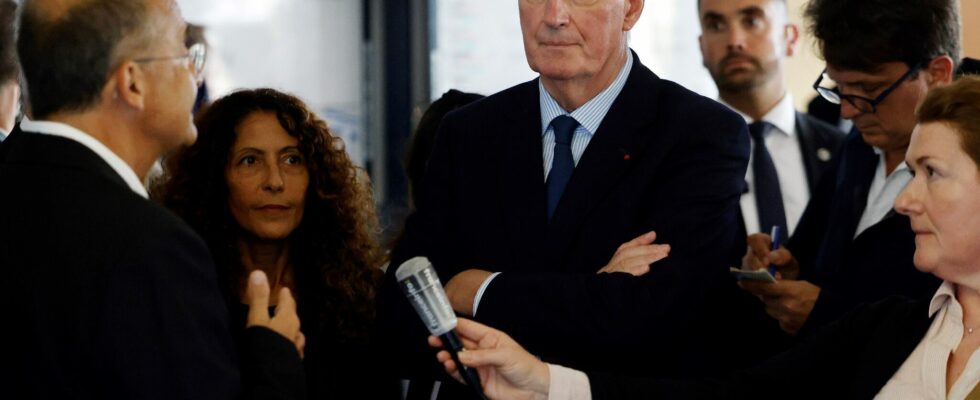Desperate times call for desperate measures. Even when they have a bitter taste. Faced with the “very serious” situation of public funds, Michel Barnier is considering “increasing taxes”. In any case, this is an option that the new tenant of Matignon has been distilling throughout his conversations with various interlocutors, we learn in the columns of Parisian. Rumors that were confirmed by Gérald Darmanin this Tuesday, September 17, at a meeting of the Ensemble pour la République (EPR) group.
The new Prime Minister has told France’s top cop of his desire for “greater tax justice,” Gérald Darmanin said on France 2 on Wednesday, September 18. And he mocked: “Greater social justice means increasing taxes.” A red line for the resigning minister, who assures that he wants to “become a deputy again,” and who considers it “out of the question” to “enter” a government that increases taxes, or even to “support” it in the National Assembly.
Taxation, a point of tension within Macronie
A position in line with the rest of the former presidential majority, assures Gérald Darmanin. And which echoes that of Michel Barnier’s predecessor at Matignon, now leader of the EPR group at the Palais Bourbon. During the campaign for the early legislative elections, Gabriel Attal had erected as a “budgetary golden rule” the promise not to inflate taxation. The fact remains that within the Macronist camp, the question divides, particularly between the right wing and the left wing.
Former member of the Maison Rose, Renaissance MP Sacha Houlié praised Michel Barnier’s determination on X. “There are many reasons to oppose Mr Barnier’s political project […] but the best contribution of the most well-off […] is doubly necessary,” he stressed. And the man who has distinguished himself as the biggest detractor within the presidential camp of the Immigration law clarified: “For tax justice first, and for the contribution to reducing the public debt elsewhere.”
The left, timid but favorable
A little tune that is not without recalling that played by the New Popular Front (NFP) during the early legislative elections. Thus, if its executives are not in a hurry to welcome the initiative of the new Prime Minister, consistency would require that the left-wing coalition support measures going in the direction of “greater fiscal justice”. The only political party to have agreed to meet Michel Barnier, the Communist Party (PCF) notably welcomed the commitment of the Matignon tenant on Tuesday.
And for good reason, the formula could result in the resumption of certain measures contained in the legislative contract of the left-wing coalition. Among them, the reestablishment of the solidarity tax on wealth (ISF), or even an overhaul of the inheritance tax. “Tax justice measures”, argues Carole Delga, in the wake of François Hollande’s former minister Stéphane Le Foll. The one who would have declined an offer within the next government, according to his statements, also perceives the increase in taxes as necessary.
LR and RN maintain ambiguity
However, there are several obstacles along the way to a tax increase. First, the idea could put off Michel Barnier’s political family, even though the support of the Republicans remains crucial for the next government. Didn’t Laurent Wauquiez himself make a tax freeze a key promise of his legislative pact? Second, in recent weeks, the National Rally (RN) has made tax increases “a red line”, as Julien Odoul, Front National MP and spokesperson for the party with the flame, reminded us on Tuesday evening.
The fact remains that over the last twenty-four hours, the LR and, to a lesser extent, the RN, seem to have softened their position, suggesting that the famous “red line” could be moved. “If this means relieving those who work and create wealth to bring net salary closer to gross salary, it is very good news,” for example welcomed Vincent Jeanbrun, spokesperson for the LR group in the lower house.
For his part, Front National representative Jean-Philippe Tanguy indicated on RMC on Wednesday that his party would not oppose an increase in taxes “for the richest” if it were coupled with a reduction in the tax burden “for the working and middle classes”. Between those who do not want to hear about it and those who condition their support on a whole range of parameters, Michel Barnier, if he wants to survive a motion of censure, has not finished playing the balancing act.
